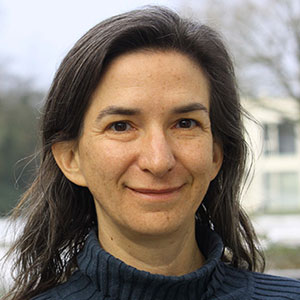Studying a species of tropical fish can tell a larger story of how animals make decisions, and how experience and genetics combine to alter those decisions.
That’s the thrust of Associate Professor of Biology Kim Hoke’s research in the evolution of animal behavior, which she’ll discuss during a free campus lecture May 1.

Hoke, named a Colorado State University Monfort Professor in 2017, will deliver her Monfort Professor Lecture Wednesday, May 1, at 4 p.m. in the Lory Student Center Longs Peak Room. All are welcome. Monfort Professorships are among CSU’s highest faculty honors, awarding selected faculty unrestricted grant funding over two years to support their scientific endeavors.
Hoke’s lecture, “How genes and environment shape decisions and dictate evolutionary potential,” will detail how her lab develops integrated views of the diverse molecular and cell mechanisms by which genetic backgrounds shape animal decisions.
Guppies and predators
For over a decade, Hoke has led a research inquiry into Trinidadian guppies, small tropical fish that live with larger aquatic predators in some places but have also colonized stretches of river with fewer predators.
“We find that fish differ in how predator exposure during their development shapes both anti-predator and social decisions, depending on their population of origin,” Hoke said. “We are linking molecular, neural, social and physiological traits that influence decision-making to genetic differences and evaluating how genetics and experience together impact evolution.”
Hoke is an accomplished biologist who has earned major research grants as well as recognition for excellence in teaching and mentoring students. She has used the Monfort Professor funds to extend her established research on genetic and developmental contributions to behavioral diversity in Trinidadian guppies.